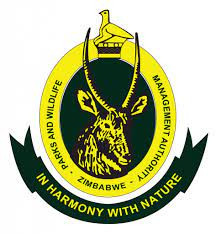
THE transformation of the Zimbabwe Parks and Wildlife Management Authority (ZimParks) has resulted in sustainable conservation in the country, a new report has shown.An evaluation of ZimParks was requested and supported by the European Commission during the 2015-2016 period.
Consulting firm ARS Progetti Consortium was contracted to do the independent evaluation which was completed in 2016. A final report was submitted in February 2017.Several challenges affecting the performance of ZimParks were identified in the process, among them, poor financial management.
According to the report, some of the key challenges that needed urgent attention include low staff morale, poor working conditions, lack of prioritisation of key operational activities, garnishing of authority accounts and a growing debt including a legacy debt of US$25 million.
In a statement, ZimParks director-general Fulton Mangwanya said the authority cleared all salary arrears between 2017 and 2020.“We also improved financial management systems and achieved a positive balance sheet, purchased uniforms for all employees and improved the image of the organisation, improved vehicle workshop service and reduced poaching of key species like elephant, rhino and large carnivores.
“Recruitment and training of rangers was done in 2018 and 2019, strengthening law enforcement efforts. After developing our five-year strategic plan for ZimParks (2019-2023), which was approved in 2018, we mobilised resources to sustain and intensify resource protection operations in all protected areas, formalising agreements and implementation thereof,” Mangwanya said.
“We also supported the development and submission of four key proposals at CITES COP18, something that had not been done before, even though the proposals could not sail through, it commanded a lot of respect for the country to voice concerns of our local communities living with wildlife and yet not being supported to trade internationally in wildlife products of listed species.”
Addressing rangers who had completed a rigorous three-month course in wildlife conservation in Matusadona National Park recently, Mangwanya said wildlife conservation contributes significantly to the National Development Strategy 1.
“Our collaborative efforts in the wildlife conservation industry, led by ZimParks contributes, in a significant way, to the strategic plan for the ministry of environment, climate and wildlife, the government blueprint for vision 2030, the National Development Strategy 1 2021-2025, particularly contributing to the National Priority Area of Environmental protection, climate resilience and natural resources management and the national key results areas of environment and climate protection,” he said.
- Social commentary: Mangwe pushes for girls’ education
- Lifeline for disaster-prone Mangwe schools
- Social commentary: Mangwe pushes for girls’ education
- Lifeline for disaster-prone Mangwe schools
Keep Reading
“The successful completion of this intensive training course by our wildlife rangers brings us closer to collectively achieving these goals.”











